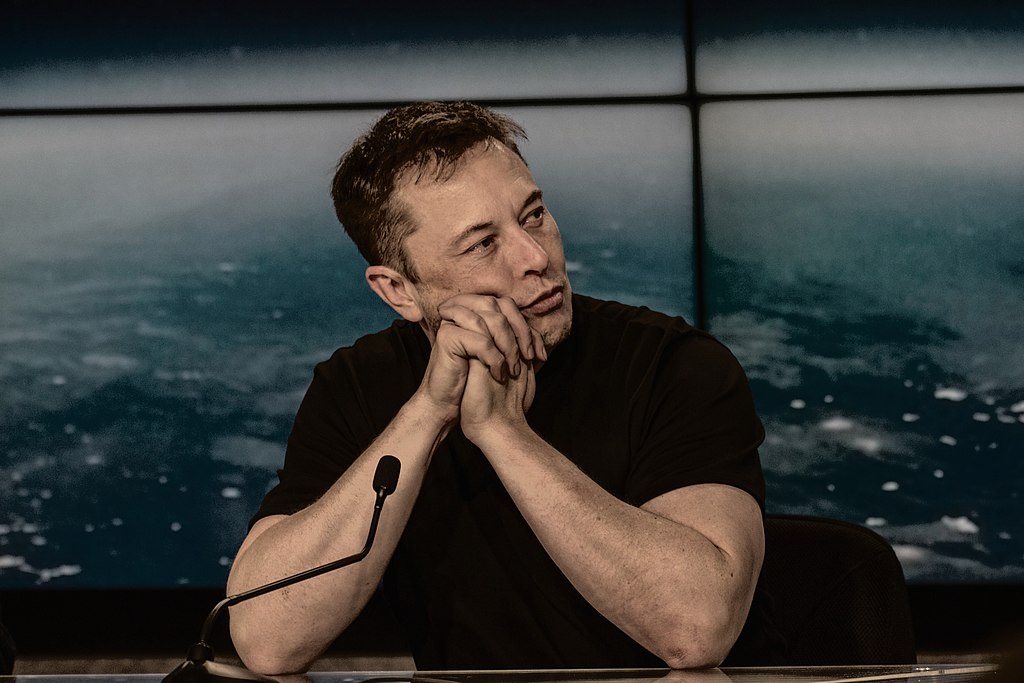Elon Musk has denied reports that his artificial intelligence (AI) business, xAI, had received $500 million in investor commitments toward a $1 billion objective.
"This is simply not accurate," he said in a reply to a user post about the Bloomberg article on social media platform X.
xAI Navigates Valuation Talks Amidst Unique Equity and Resource Negotiations
The artificial intelligence (AI) startup xAI is discussing a valuation of $15 billion to $20 billion, though terms could still change in the coming weeks, Bloomberg reported, citing people familiar with the matter, as per Reuters. xAI was not immediately available for comment.
Musk and investors are likely to settle terms in the coming weeks, and some parties are considering receiving processing power in addition to, or even instead of, xAI equity shares, according to Bloomberg.
Musk announced last December that his artificial intelligence business would not be raising cash, a day after the startup filed with the US Securities and Exchange Commission to raise up to $1 billion in an equity offering.
Musk founded xAI in July of last year in reaction to Big Tech's AI initiatives, which he has criticized for excessive censorship and a lack of proper safety precautions.
Starlink Helps Communications In Quake-hit Central Japan
Rescue workers and people on the disaster-hit Noto Peninsula in central Japan are increasingly turning to Elon Musk's Starlink satellite internet service, as the magnitude-7.6 earthquake on New Year's Day wrecked communications infrastructure and continues to interrupt services, as per Japan Today.
KDDI Corp, a Japanese telecom operator that operates the Starlink service run by SpaceX, one of the tech billionaire's firms, has provided 550 Starlink routers to shelters, government offices, and disaster medical support teams operating in the affected areas.
At a fire station in Wajima, Ishikawa Prefecture, one of the hardest damaged locations, 300 firemen began using the service for rescue operations. The Starlink service was also made available to 350 evacuees at an elementary school in Suzu, Ishikawa.
Starlink debuted in Japan in December 2022. The service uses low-orbit satellites to provide faster internet than conventional satellite services that lack large-scale infrastructure.
The debut of the Starlink service in Japan follows the technology's success in war-torn Ukraine, where it was used to supply communications technology in places where existing infrastructure was devastated.
Previously, wireless radio and existing satellite communication systems were used in disaster-stricken areas, but services requiring high-speed connections and large amounts of data, such as video calls, proved difficult, according to Yuichiro Usuda, head of a government panel tasked with promoting disaster preparedness measures.
He explained that a communication service like Starlink is especially useful in the Noto Peninsula, where transportation is limited.



 Meta Signs Multi-Billion Dollar AI Chip Deal With Google to Power Next-Gen AI Models
Meta Signs Multi-Billion Dollar AI Chip Deal With Google to Power Next-Gen AI Models  Samsung and SK Hynix Shares Hit Record Highs as Nvidia Earnings Boost AI Chip Demand
Samsung and SK Hynix Shares Hit Record Highs as Nvidia Earnings Boost AI Chip Demand  DeepSeek AI Model Trained on Nvidia Blackwell Chip Sparks U.S. Export Control Concerns
DeepSeek AI Model Trained on Nvidia Blackwell Chip Sparks U.S. Export Control Concerns  Trump Orders Federal Agencies to Halt Use of Anthropic AI Technology
Trump Orders Federal Agencies to Halt Use of Anthropic AI Technology  Nintendo Share Sale: MUFG and Bank of Kyoto to Sell Stakes in Strategic Unwinding
Nintendo Share Sale: MUFG and Bank of Kyoto to Sell Stakes in Strategic Unwinding  Trump Pushes Tech Giants to Build Power Plants to Offset AI Data Center Energy Costs
Trump Pushes Tech Giants to Build Power Plants to Offset AI Data Center Energy Costs  Pentagon Weighs Supply Chain Risk Designation for Anthropic Over Claude AI Use
Pentagon Weighs Supply Chain Risk Designation for Anthropic Over Claude AI Use  OpenAI Faces Scrutiny After Banning ChatGPT Account of Tumbler Ridge Shooting Suspect
OpenAI Faces Scrutiny After Banning ChatGPT Account of Tumbler Ridge Shooting Suspect  Nvidia Earnings Preview: AI Chip Demand, Data Center Growth and Blackwell Shipments in Focus
Nvidia Earnings Preview: AI Chip Demand, Data Center Growth and Blackwell Shipments in Focus  Hyundai Motor Plans Multibillion-Dollar Investment in Robotics, AI and Hydrogen in South Korea
Hyundai Motor Plans Multibillion-Dollar Investment in Robotics, AI and Hydrogen in South Korea  Samsung Electronics Stock Poised for $1 Trillion Valuation Amid AI and Memory Boom
Samsung Electronics Stock Poised for $1 Trillion Valuation Amid AI and Memory Boom  Nvidia Earnings Preview: AI Growth Outlook Remains Strong Beyond 2026
Nvidia Earnings Preview: AI Growth Outlook Remains Strong Beyond 2026  xAI’s Grok Secures Pentagon Deal for Classified Military AI Systems Amid Anthropic Dispute
xAI’s Grok Secures Pentagon Deal for Classified Military AI Systems Amid Anthropic Dispute  Apple to Begin Mac Mini Production in Texas Amid $600 Billion U.S. Investment Plan
Apple to Begin Mac Mini Production in Texas Amid $600 Billion U.S. Investment Plan 































